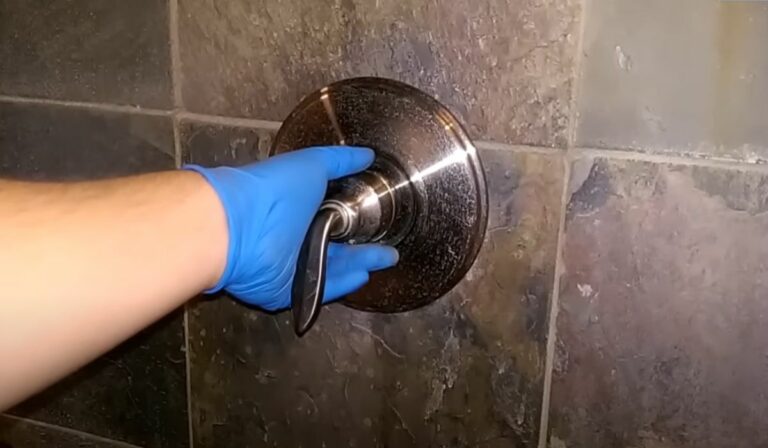What Happens if U Don’t Shower
If you don’t shower, sweat and bacteria build up on your skin, causing strong body odor and itchy, irritated patches. Your pores can get clogged, leading to pimples and acne, while fungi may cause infections like athlete’s foot. Hair gets greasy and dull, and you might feel sluggish or less confident. Skipping showers can also upset your skin’s natural balance and immune defense. Keep going to find out how this all connects to your overall health and well-being.
The Impact on Body Odor
Although you mightn’t notice it immediately, skipping showers allows bacteria on your skin to multiply, which leads to stronger body odor. Your skin naturally produces sweat, but it’s mostly odorless until bacteria break it down. When you don’t wash away sweat and dead skin cells, these bacteria thrive, producing unpleasant smells.
Areas like your armpits, feet, and groin are especially prone to this because they’re warm and moist, creating the perfect environment for bacteria. Over time, the odor becomes more noticeable and harder to eliminate without proper cleansing.
Showering regularly helps remove sweat, dirt, and bacteria, keeping your body smelling fresh. So, skipping showers doesn’t just affect how you feel but also how others perceive your personal hygiene.
Skin Health and Acne Development
Beyond just affecting body odor, skipping showers can also impact your skin’s health and lead to acne development. When you don’t wash regularly, dirt, oil, and dead skin cells build up on your skin’s surface. This buildup clogs your pores, creating an environment where acne-causing bacteria thrive.
You might notice more pimples, blackheads, or whiteheads appearing, especially if you have oily or sensitive skin. Additionally, sweat and oils trapped on your skin can irritate it, causing redness or inflammation.
Showering helps remove these impurities and keeps your skin clear. So, if you want to maintain healthy, glowing skin and reduce breakouts, regular cleansing isn’t just about smelling good—it’s essential for preventing acne and keeping your skin balanced.
Bacterial and Fungal Growth Risks
When you skip showers, bacteria and fungi find the perfect environment to multiply on your skin. Sweat, dead skin cells, and natural oils build up, creating a warm, moist habitat that encourages microbial growth.
This can lead to unpleasant body odor as bacteria break down sweat into smelly compounds. Fungal infections, like athlete’s foot or yeast infections, can also develop, especially in areas that stay damp or experience friction.
If left unchecked, these microbes can cause itching, redness, and irritation. You might even experience skin infections if harmful bacteria penetrate small cuts or abrasions.
Regular showering helps wash away excess microbes and sweat, reducing the risk of these issues. So, skipping showers regularly can compromise your skin’s balance, making you more vulnerable to bacterial and fungal problems.
Effects on Scalp and Hair Condition
Neglecting to shower regularly can quickly affect your scalp and hair health. When you skip washing, oils and dead skin cells accumulate, clogging hair follicles and leading to an itchy, flaky scalp. This buildup can cause dandruff or worsen existing scalp conditions like seborrheic dermatitis.
Your hair will start to look greasy and limp, losing its natural shine and volume. Dirt and sweat trapped in your hair can also cause unpleasant odors.
Over time, the excess oil and grime may attract bacteria or fungi, increasing the risk of infections that can damage hair follicles and cause hair thinning or loss.
To keep your scalp balanced and your hair strong, it’s important to maintain a consistent shower and hair-washing routine tailored to your hair type.
Influence on Mental Well-being
Although skipping showers might seem like a minor issue, it can significantly affect your mental well-being. When you don’t shower regularly, you may start to feel sluggish and less motivated.
The act of showering stimulates your senses and can boost your mood by increasing blood flow and releasing tension. Without this routine, you might experience heightened feelings of stress or anxiety.
Plus, neglecting personal hygiene can lead to a drop in self-esteem, making you feel less confident. Over time, these mental effects can accumulate, disrupting your daily focus and productivity.
Potential Social Consequences
If you skip showers regularly, you risk creating noticeable body odor that others will pick up on quickly. This can lead to awkward social interactions, as people may avoid close contact or distance themselves without explaining why.
Friends, family, and coworkers might hesitate to spend time around you, which could strain relationships or cause feelings of isolation. In professional settings, poor hygiene could impact your reputation and opportunities, as colleagues and employers often value cleanliness.
You might notice subtle cues—like fewer invitations or less eye contact—that signal discomfort. To maintain positive social connections, it’s important to prioritize personal hygiene.
Regular showers help you present yourself confidently and avoid unintended social barriers caused by unpleasant odors or visible signs of neglect.
Changes in Sweat Production
When you stop showering regularly, your sweat glands don’t just keep working as usual—they can actually change how much sweat they produce. At first, you might notice more sweat because your body tries to rid itself of heat and toxins.
Over time, however, your sweat glands may adjust, producing less sweat as your skin’s surface becomes coated with bacteria and dead skin cells. This buildup can interfere with sweat evaporation, making you feel even more uncomfortable.
Plus, the sweat that’s produced mixes with bacteria on your skin, causing stronger odors. You might also experience increased sweating in stressful situations, since your body reacts to discomfort by activating sweat glands more aggressively.
The Role of Sebum and Natural Oils
Sweat isn’t the only substance your skin produces that changes when you skip showers. Your skin also creates sebum, a natural oil that keeps your skin moisturized and protected.
When you don’t shower regularly, sebum builds up on your skin’s surface, making it feel greasy or oily. This excess oil can trap dirt and dead skin cells, leading to clogged pores and potential breakouts.
While sebum plays a crucial role in maintaining skin health by providing a protective barrier, too much of it can create an environment where bacteria thrive.
You might notice your skin looking shinier or feeling stickier as sebum accumulates. Regular cleansing helps balance these oils, preventing buildup and keeping your skin comfortable and healthy.
How Not Showering Affects Immune Function
Although skipping showers might seem harmless, it can impact your immune system more than you realize. When you don’t wash regularly, bacteria and pathogens build up on your skin, forcing your immune system to work overtime. This constant activation can lead to inflammation and weaken your body’s ability to fight off infections effectively.
Plus, sweat and dirt clog pores, creating an environment where harmful microbes thrive, increasing your risk of skin infections. Your skin acts as a crucial barrier, and neglecting hygiene compromises this defense, making you more vulnerable to illness.
Recommended Shower Frequency for Different Lifestyles
Because your daily activities and environment vary, your shower frequency should adapt accordingly. If you lead an active lifestyle or sweat a lot, like exercising daily or working outdoors, showering every day helps remove sweat, dirt, and bacteria.
On the other hand, if you have a mostly sedentary routine and minimal sweating, showering two to three times a week might be enough to maintain hygiene without stripping your skin’s natural oils.
For those with sensitive or dry skin, less frequent showers using lukewarm water can prevent irritation.
Climate also plays a role; hot, humid areas may require more frequent showers, while cooler, dry climates allow for fewer.
Ultimately, listen to your body’s signals—shower when you feel dirty or uncomfortable to balance cleanliness and skin health.
Frequently Asked Questions
Can Not Showering Affect Sleep Quality?
Yes, not showering can affect your sleep quality because dirt and sweat can make you uncomfortable and itchy. Plus, a warm shower before bed helps relax your body, so skipping it might make falling asleep harder.
Does Skipping Showers Impact Body Temperature Regulation?
Yes, skipping showers can impact your body temperature regulation. Showers help cool your body and remove sweat, aiding temperature control. Without them, you might feel uncomfortable or overheated, especially in warm environments or after exercise.
How Does Not Showering Influence Clothing Hygiene?
If you don’t shower, your clothes get dirtier faster because sweat, oils, and bacteria build up on your skin and transfer to fabric. You’ll notice stains, odors, and quicker wear, so changing and washing clothes more often helps.
Can Avoiding Showers Affect Dental Health?
Avoiding showers won’t directly affect your dental health, but poor overall hygiene habits can lead to bacteria buildup. Still, you need to brush and floss regularly to keep your teeth and gums healthy, no matter what.
Does Not Showering Impact Menstrual Hygiene?
Yes, not showering can impact your menstrual hygiene by allowing sweat, blood, and bacteria to build up, which may cause odors, irritation, and infections. Regular washing helps you stay clean and comfortable during your period.
Conclusion
If you don’t shower regularly, you’ll notice body odor worsening and your skin becoming more prone to acne and irritation. Bacteria and fungi can multiply, increasing infection risks, while your scalp and hair may feel greasy or itchy. Neglecting hygiene can even affect your mental well-being and immune function. Finding a shower routine that fits your lifestyle helps maintain cleanliness, comfort, and health, so make sure you keep up with it consistently.


